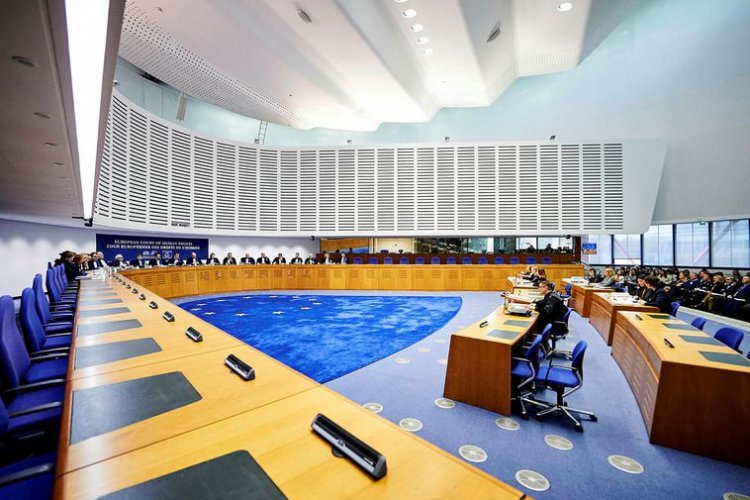The advisory opinion before the ECHR: the Belgian State's first request

31-05-2023
Anouk Pinaud
International Justice and Human Rights Researcher,
Global Human Rights Defence,
On 13 April 2023, the first request for an advisory opinion by one of the highest courts in Belgium (le “Conseil d’Etat”) has been submitted to the European Court of Human Rights.
It was based on Protocol No. 16 to the European Convention on Human Rights that the Belgian Court was able to make its request for an advisory opinion. More precisely, Protocol No. 16 “allows the highest courts and tribunals, as designated by the Member States which have ratified this text, to request the European Court of Human Rights to give advisory opinions on questions of principle relating to the interpretation or application of the rights and freedoms defined in the Convention or its protocols”.[1]
Protocol No. 16 entered into force on 1 August 2018. As matters stand, on 31 May 2023, twenty-five States have signed the Protocol and nineteen have ratified it. Only the highest national courts or tribunals of a High Contracting Party may request the Court to give an advisory opinion. It concerns interpretations and applications of the rights and freedoms defined in the Convention. To comply with the procedure, the highest court sends a letter to the Court requesting an advisory opinion relating to a case pending before it. A five-judge panel of the Grand Chamber meets to decide whether or not to accept the request. The panel of the Grand Chamber is made up of five judges who will give the advisory opinion concerning the admissibility. If the judges are not unanimous, they can each present their opinions and the majority will prevail. At this stage only the question of the admissibility of the request, as such, was examined by the panel. If the application is declared admissible by the Grand Chamber panel, it will then be examined by the Grand Chamber (composed of 17 judges). Finally, the advisory opinion will be sent to the Court that requested it. It is important to remember that these opinions are not binding. These opinions are intended to provide guidance to the highest courts in the Member States on how to interpret the Convention.
Concerning the request for an advisory opinion by the Belgian Conseil d’Etat, the panel of the Grand Chamber accepted the request on 10 May 2023. This means that the application is admissible. The next stage is for the Grand Chamber to examine the application in detail and issue an advisory opinion.
The request from Belgium's highest court concerns the following facts. In order to be able to work as a surveillance or security guard in Belgium, it is necessary to obtain an identity card, issued by the Minister of the Interior or his or her representative. In 2019, a security agency requests the renewal of a security guard's identity card. The security guard had already been in the profession for 9 years. Therefore, a safety investigation is carried out during the procedure. Due to his contacts with individuals associated with scientific Salafism, the State Security Service informed the Ministry of Interior that the employee in question was known to the intelligence services.
Despite a hearing of this employee, who presented his defense, on 15 October 2021, the Ministry of the Interior decided to withdraw the identity card d that had been issued to the individual in question and refused to issue the new card requested by his employer, 2 entitling him to work in a security and surveillance company.
Consequently, on 25 October 2021, the security guard applied to the Conseil d’Etat for annulment of that decision.
In its request, the Belgian Conseil d’État put the following question to the Court: “Does the mere fact of closeness to or membership of a religious movement that is considered by the competent administrative authorities, in view of its attributes, to present a medium- or long-term threat to the country, amount under Article 9 § 2 (freedom of thought, conscience and religion) of the Convention to sufficient grounds for taking an unfavourable measure against an individual, such as a ban on working as a security or surveillance guard?”.
The Conseil d'Etat asked the Court whether this situation infringed a fundamental right guaranteed by the Convention, namely” freedom of thought, conscience and religion”.
Sources and further readings:
[1] Press Service, European Court of Human Rights, What is a request for an advisory opinion ?, 08 Avril 2019 : https://echr.coe.int/Documents/Press_Q_A_Advisory_opinion_ENG.PDF
Guidelines on the implementation of the advisory-opinion procedure introduced by Protocol No. 16 to the Convention, European Court of Human Rights, 18 October 2021: https://echr.coe.int/Documents/Guidelines_P16_ENG.pdf
Press Service, European Court of Human Rights, What is a request for an advisory opinion ?, 08 Avril 2019: https://echr.coe.int/Documents/Press_Q_A_Advisory_opinion_ENG.PDF
ECHR, Advisory opinions under Protocol No. 16: https://echr.coe.int/Pages/home.aspx?p=caselaw/advisoryopinions&c=
Council of Europe Portal, Treaty Office, Chart of signatures and ratifications of Treaty 2014 (Protocol No. 16), Status as of 31 May 2023: https://www.coe.int/en/web/conventions/full-list?module=signatures-by-treaty&treatynum=214




 GHRTV
GHRTV 




























